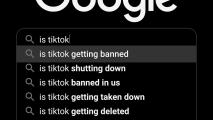It was a splashy reversal of the damage wrought — especially on the poor and people of color — by the War on Drugs: 66,000 marijuana convictions motioned to be expunged by the LA County District Attorney’s office. The cases were found amid a galaxy of criminal records by an algorithm developed by Code for America, which identified cases eligible for criminal record clearance by the passing of Prop 64, which legalized marijuana in California.
Now that marijuana is legal in Illinois, a similar effort is underway in the Cook County State’s Attorney’s Office, and Code for America is back on board. But like most of the country, and unlike LA, Cook County courts depend almost entirely on paper records.
The process is difficult, and the stakes are high. While nothing can change the damage, expungement can limit the impact going forward.
“Most court systems throughout the United States are still incredibly paper-based,” says Kristina Kaupa, policy advisor with the Cook County State’s Attorney’s Office. “But Illinois is incredibly so.”
Just finding these records is a challenge, and then each individual motion to vacate a conviction must be filled out, on paper, and filed with the court.
The process is difficult, and the stakes are high. While nothing can change the damage that was done by the arrests, incarceration, and convictions in the past, expungement can limit the damage going forward.
Those records can prevent people from accessing jobs or housing, among other needs, says Cynthia Cornelius, director of programming at Cabrini Green Legal Aid. “That means that people who have made a mistake in the past — and sometimes many years in the past — are just precluded from being able to be their best selves.”
First up in Illinois’s expungement process are people who were pinched for possessing 30 grams and under of weed. Since 30g is now the approved legal amount in the state, the idea is to erase these records to reflect the new state of the law, Kaupa says.
The largest and most comprehensive database of cases is kept by the Illinois State Police (ISP). Any records under the level of a conviction, like an arrest, can be automatically expunged by the state, Kaupa says. But convictions are a little trickier. Since a legal mechanism found you guilty, a legal mechanism has to vacate that conviction so that the record can then be destroyed. And that means processing the paper — a lot of paper.
In their first batch, ISP digitized and sent over 18,000 stand-alone convictions for marijuana to the State’s Attorney’s Office — on a CD-ROM! Using that data, Code for America then deployed an algorithm that automatically populated the fields needed for the new paper records that the State’s Attorney would need to deliver to court.
“We handle about 19,000 expungements a year here in Cook County,” Kaupa says. “Code for America was able to populate 10,000 in a minute.”
Importantly, people did not need to apply for criminal record clearance; it happens automatically for those eligible. “For those who really only have marijuana (charges), it is significant because it eliminates the time and the cost of all that they have to do to take steps themselves,” Cornelius says.
Just over a thousand convictions were cleared first. “For those first thousand convictions, we needed to bring a paper motion and order for the judge to sign into court for every single individual,” Kaupa says.
“Code for America was able to populate 10,000 (expungements) in a minute.”
Kristina Kaupa
In a blend of old school bureaucracy and new school technology, stacks of papers with fields populated by Code for America’s algorithm were literally walked into court in December.
State’s Attorney Kim Foxx read the first hundred names of those whose charges were being vacated into the record. “It was incredibly powerful and moving,” Kaupa says.
The first 1,012 were signed, and the records began to be eliminated.
It was an emotional moment for Kaupa, but she recognizes how far there is still to go. “I think, for myself personally, it’s something that I won’t fully feel the weight of until probably years from now, because right now it feels like we could still be doing so much more.”
Cornelius agrees that it was just the beginning. “We are hopeful that this first step in automating expungements using technology is going to whet the appetite of the legislators, and we can make more significant changes in our state.”
Ed. Note: This draft has been updated from an earlier version.






